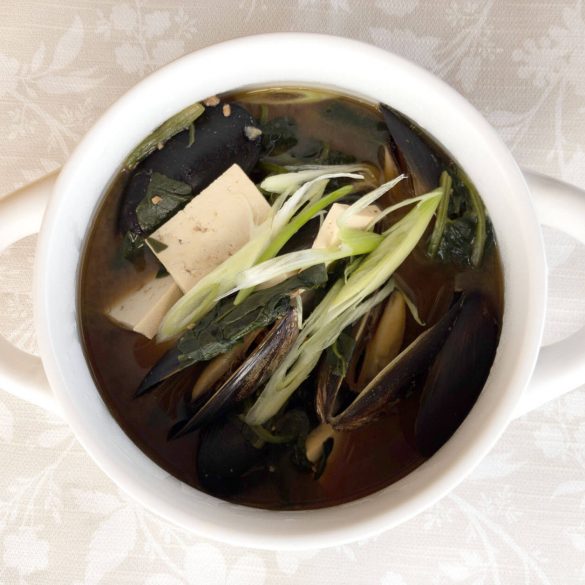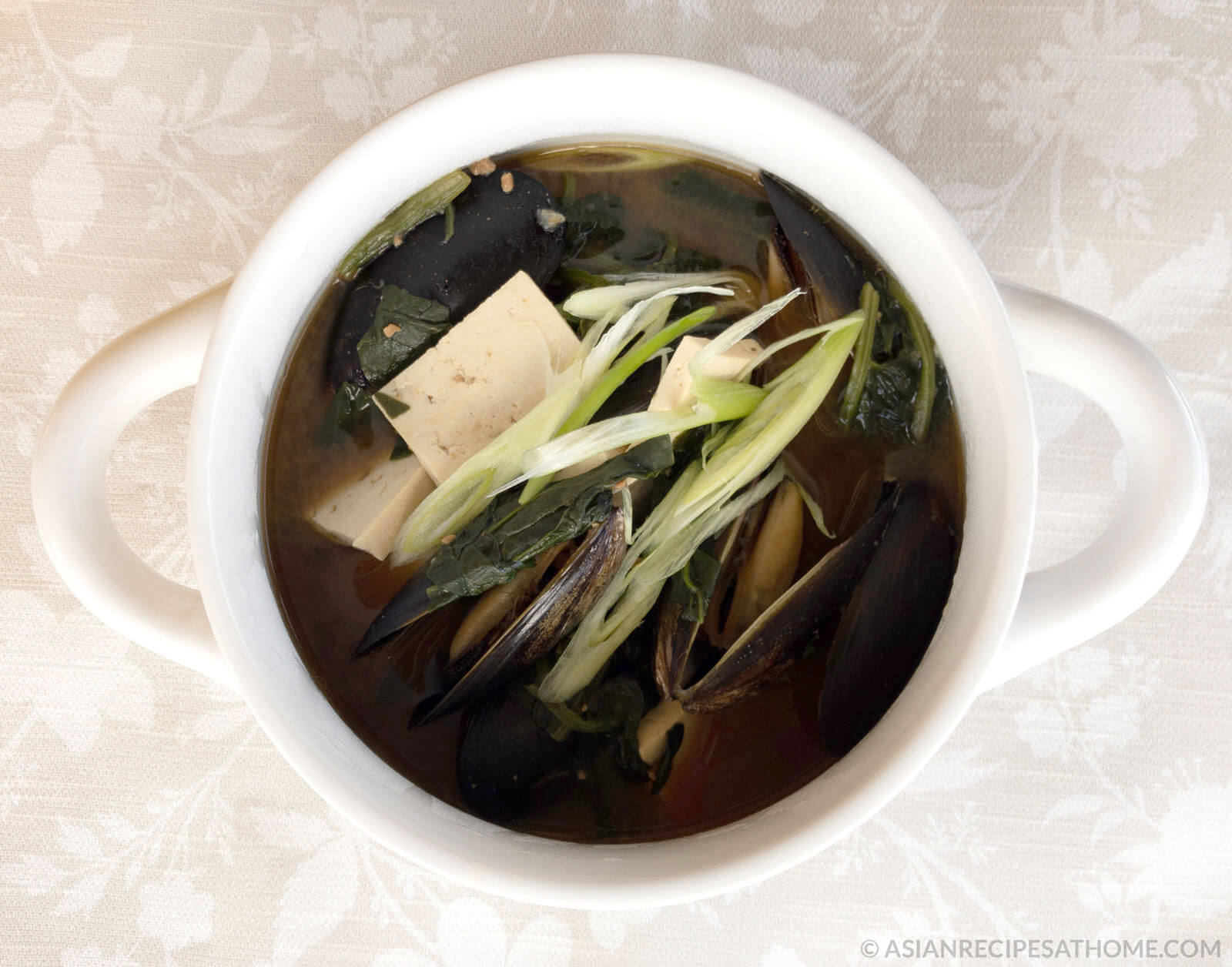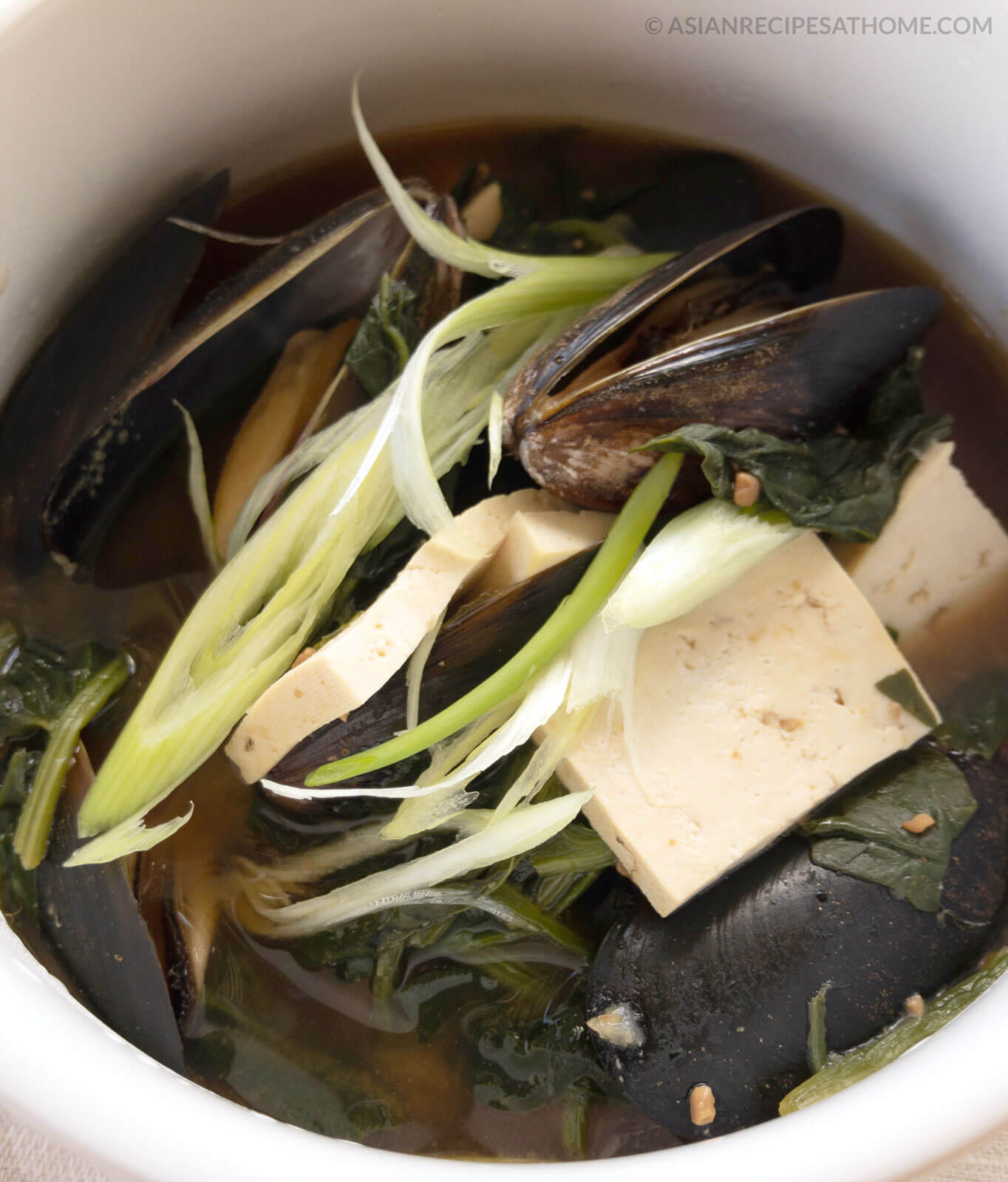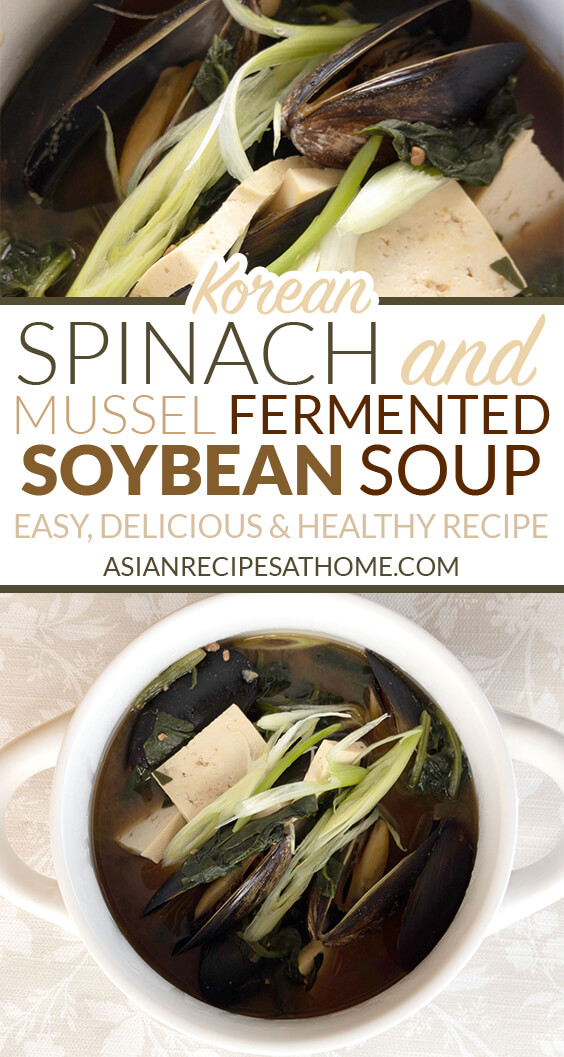This Korean spinach and mussel fermented soybean (doenjang) soup is so easy to make. It’s also healthy for you, hearty, and is the perfect companion to a bowl of freshly steamed rice.
Soups (jjigaes) are a Korean staple to have with meals all year round. You will almost always see a big bowl of soup in the center of the table. A typical Korean meal usually consists of a stoup/stew, freshly steamed white rice, and a variety of banchan. Fermented soybean paste (doenjang) is considered to be one of the essential items to have on hand for cooking authentic Korean cuisine.
Some Benefits of Eating Fermented Soybean Paste (Doenjang)
According to a study by Chonbuk National University’s Medical School, the group of participants who ate the fermented paste showed significant shrinkage of visceral fat in their abdominal CT scans. Many people believed that the salt in doenjang could cause high blood pressure, however, in the study it was noted that eating doenjang had little effect on blood pressure.
Another study also concluded that “dietary feeding of doenjang markedly suppressed the body weight gain, decreased the amount of body fat, and improved the lipid profile through inhibition of hepatic and adipocyte lipogenesis and modulation of adipokine production in high fat-fed mice”. I don’t know about you, but all these health benefits make me want to eat doenjang regularly.
This recipe is a great and delicious way to incorporate this healthy, fermented soybean paste into your diet. If you’re not a huge fan of eating mussels, then make sure you check out our Korean Green Onion Fermented Soybean Paste (Doenjang) Soup recipe.
Serve this soup with a bowl of freshly steamed rice and a variety of side dishes (banchan). We have many different side dish recipes available on our website. A couple of good options to go along with this soup is our Easy Napa Cabbage Korean Kimchi recipe and our Korean Seasoned Spinach Side Dish (Sigeumchi-namul) recipe.
We hope you enjoy this Korean spinach and mussel fermented soybean (doenjang) soup recipe!
HUNGRY FOR MORE? Subscribe to our newsletter and follow along on Facebook, Pinterest, Twitter, and Instagram for all of the latest updates.

Ingredients
½ pound spinach
4 large dried anchovies
½ pound frozen mussels
3 cups water
1 tbsp fermented soybean paste (doenjang 된장)
½ tsp Dasida beef flavor soup stock
2 cloves garlic
1 stem green onion
¼ tsp salt
½ pack firm tofu
Instructions
- First, let’s blanch the spinach. Turn on the stove and add 3 cups of water to a medium-sized pot. Bring the water to a boil and add a pinch of salt to boiling water.
- Add spinach to water and boil for 30 seconds to 1 minute.
- Remove spinach from boiling water, rinse it with cold water, and drain as much water from the spinach as possible. Set the rinsed and drained aside in a bowl.
- In the same pot you blanched the spinach in, add 3 cups of water and the anchovies. Allow it to come to a boil and boil for about 3-5 minutes.
- Remove anchovies from the boiling water and add the fermented soybean paste (doenjang), Dasida beef flavor soup stock, minced garlic and Korean hot pepper paste (gochujang). Continue boiling for another 2-3 minutes.
- Cut the blanched spinach lengthwise. Rinse the mussels with cool water until they’re clean of any debris.
- Then add both the spinach and mussels to the boiling soup. Continue boiling for about 5-7 minutes.
- While you’re letting the soup to continue to boil, cut the tofu into ¼ inch thick rectangular pieces. Cut the green onions into about 1 inch in length on a diagonal.
- Add the sliced tofu and green onions to the soup and turn off the stove. Mix the tofu into the soup. Let tofu get warm in the hot soup (about 2 minutes).
- It’s ready to serve! Enjoy!
Notes
Sizes of the mussels can vary (some may be larger or smaller), so cook until mussels have reached safe doneness. You do not want to overcook the mussels thought because it will be too chewy and tough.
We love seeing your creations from our recipes! Tag us on Instagram at @AsianRecipesAtHome.
Recommended items for this recipe:
Disclaimer: Under no circumstances shall this website and the author(s) be responsible for any loss or damages resulting from the reliance of the given nutritional information or ingredient/product recommendations. Recommended ingredients/products can change their formula at any time without this website and author’s awareness. It is your responsibility (the reader’s) to check the label/ingredients of any product prior to purchasing and/or using. We greatly appreciate your support and understanding.


